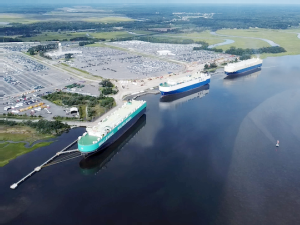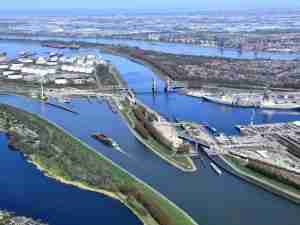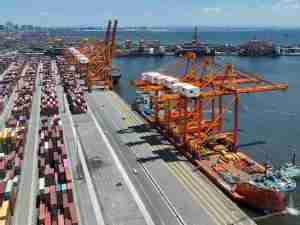Aston Martin Fears French Ports More Than Tariffs After Brexit
By: Cat Rutter Pooley and Charlotte Ryan | Aug 31 2017 at 07:25 AM | Ports & Terminals
Aston Martins worth about $185,000 each piling up at French ports awaiting customs clearance: that’s the iconic British carmaker’s biggest Brexit nightmare.
Should the U.K. crash out of the European Union without a trade deal, autos imported into the bloc could face tariffs of about 10 percent. The manufacturer of movie spy James Bond’s cars says that prospect neither shakes nor stirs him, as sterling’s decline helps cushion the impact of higher prices.
“What I can’t cope with is my cars being stuck at a French port for six months,” Aston Martin Holdings Ltd.’s Chief Executive Officer Andy Palmer told reporters in Tokyo during Prime Minister Theresa May’s visit to Japan. “That’s far more damaging on business. That’s why it’s at the top of my list.”
Britain’s car industry is among the industries most vulnerable to Brexit. Even if May manages to strike a wide-ranging new trade deal with the EU, manufacturers of “Made in the U.K.” autos could face lengthy checks determining whether cars coming out of the U.K. really are considered British cars. So-called rules of origin are designed to stop parties to a free-trade agreement being used by other countries to gain preferential market access.
The U.K. government has given commitments to businesses including Japan’s Nissan Motor Co Ltd. and Hitachi Ltd to encourage them to keep factories in the country, as carmakers fret over the impact of Brexit.
“In my world when you decide to design a new car, it takes four years and will probably cost you a billion dollars,” Palmer said. “Those are big bets you have to put down and if you don’t know what your sales environment, or your manufacturing environment is going to be like in four years, you can either hesitate to make the investment or you can make the investment with a certain degree of risk.”










